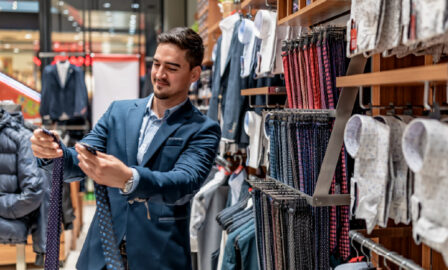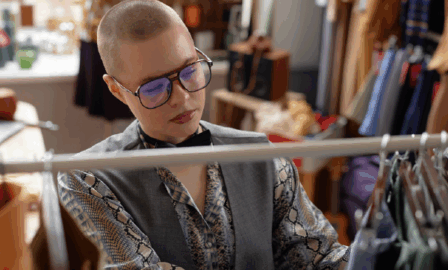The Push for Sustainability in the Luxury Retail Industry
As sustainability becomes an increasingly important consideration in all industries, it’s inevitable that luxury retail will also continue to experience increasing demand for more sustainable products and practices – particularly as a new market segment of younger and eco-conscious consumers, such as Gen Z and Millennials, begin to fuel the luxury retail market as they move into careers with more flexible income. In fact, last year Millennials and Gen Z made up 72% of the global luxury market. Although historically luxury retail has been perceived as sustainable, dodging early environmentalists because of its promises of durability and high-quality materials, it still has several unsustainable skeletons. While it might have escaped the fast fashion label, in the last years Gen Z and Millennials have driven the luxury retail market, meaning sustainability should no longer be ignored. As companies brainstorm strategic initiatives, sustainability in luxury retail should be included in that conversation.
The Environmental Issue
Two-thirds of consumers are focused on how committed companies are to sustainability when buying luxury products, and the industry remains unsustainable in many ways. Many bags, fur products, watches, and more use exotic animal skins and fur, rare woods, and precious metals. Using these materials are having significant impact on environments and ecosystems especially because they are typically sourced unethically or used excessively.
Additionally, some luxury retail brands are known to practice “brand protection”. This practice is used to maintain the brand’s exclusivity and avoid having to discount a product. Brands will burn and destroy excess goods to keep them out of secondhand shops and risk their products being perceived as lower value. While these practices may fuel keeping accessibility low, they are also extremely unstainable and are looked down upon by consumers who value repurposing and eco-friendly practices.
The Ethical Dilemma
Further than just environmental issues, consumers are looking for luxury brands to be ethical. Like the increasing demand for sustainability, there’s a need for brands that are socially responsible. This includes luxury brands being transparent in their practices and not engaging in greenwashing. Greenwashing is a practice where companies claim to be more environmentally conscious than they actually are. Additionally, consumers want to see that companies are paying fair wages and playing a positive role in our society. As luxury brands deal with ethical challenges daily, remembering to commit to being overall socially responsible will be critical.
A More Sustainable Future
Luxury brands have been receptive to this criticism and sustainability plans have been put into motion by some luxury brands. For example, The Kering Group, which owns many luxury brands including Gucci, has prohibited the destruction of unsold goods and Coach has followed a similar initiative. Furthermore, Prada has also announced to forbid the use of animal fur in its new designs and products, committing to no longer purchasing any quantity of raw fur.
Another initiative luxury brands are using is engaging more in the secondhand market. This can look like implementing reward-based take-back schemes where you might bring in an old handbag for credit towards a new one. For example, FarFetch announced its collaboration with Thrift+ where customers can purchase a used donation bag and its proceeds go to charity plus a Farfetch credit for a future purpose. On the contrary to the initiatives above, brands not engaging in implementing sustainable policies are facing backlash. For example, Burberry increased its discarded product load by more than three times since 2014 and has been under social media criticism.
As younger generations of shoppers push for sustainability, luxury brands need to prioritize establishing sustainable initiatives. There is an ethical and financial motivation to implement these practices as younger generations of buyers are seeking out brands that produce sustainably. In fact, 75% of millennials report changing to more sustainable buying habits and 73% of Gen Zers reported that they would spend more for a product produced sustainability. This fact is especially true in luxury retail as consumers are already paying premium on products. Additionally, younger generations are increasingly considering ESG (Environmental, Social, and Governance) factors before purchasing, meaning there is huge financial motivation and existing consumer demand to make this change.
Looking Ahead: Sustainability in Luxury Retail
Sustainability is becoming a top priority in all industries, including luxury retail, and it is imperative for brands to adapt to meet the demands of younger and eco-conscious consumers. As we have seen, some brands have already been successful with their new policies, so avoiding this movement could mean missing out on a new and eager market segment. As such, it will be crucial for luxury retail brands to incorporate sustainable practices into their strategic initiatives in the coming years.
Subscribe to Clarkston's Insights
Contributions from Leah Harding



